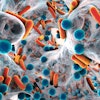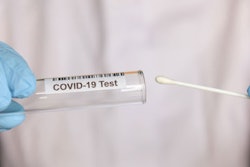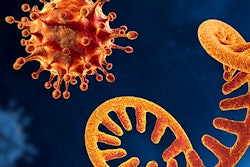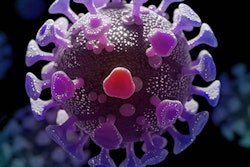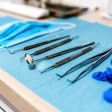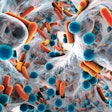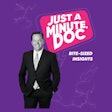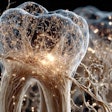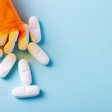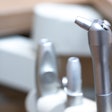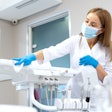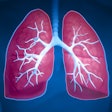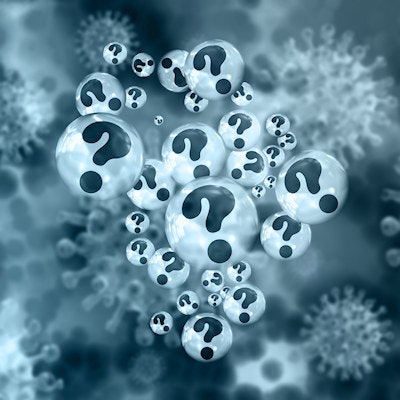
The type of high-volume aspirating system being used at a dental practice can significantly affect the incidence of SARS-CoV-2 infection among staff who work there, according to a study published on February 5 in JDR Clinical & Translational Research.
Dental clinics that were equipped with aspirating vacuum pumps without high-efficiency particulate air (HEPA) filters had much higher rates of SARS-CoV-2 infection among dental team members than those that used systems with pleated mechanical air filters, according to the authors.
"We recommend the use of aspirating systems installed with HEPA filters, which evacuate and dissipate aerosols into specialized areas," wrote the group, led by Dr. Maria Sarapultseva of Vital EVV in Ekaterinburg, Russia.
Experts have warned that aerosol-generating procedures pose an increased risk of spreading SARS-CoV-2. Dental teams have been discouraged from using high-speed drills and ultrasonic scalers to minimize the spread of COVID-19.
As the pandemic has continued, evidence has shown that other steps such as drilling at lower rotation speeds, having patients gargle with preprocedural mouthwashes, and possibly getting patients to wear dental helmets during procedures in the future may help significantly reduce aerosolization.
The current study included nearly 160 healthcare workers from three dental clinics who reported to work during the pandemic and engaged directly with patients. Those older than 65, those with chronic diseases, and those who were pregnant were excluded from the study. The employees underwent serological testing once a week to detect immunoglobulin (Ig) G and IgM antibodies against SARS-CoV-2.
V6000 aspirating systems with vacuum controllers and HEPA filters were used at two clinics. One of those clinics used the aspirating system in dry suction mode, and the other used it in semidry mode. In dry mode, aspirated fluids from the air are separated at every treatment unit. In semidry mode, the fluids are separated via a central unit that is connected to multiple units. The third clinic used the VS900 system without a HEPA filter. This system discharges air into the dental operatory similarly to natural dispersion, according to the authors.
Nineteen healthcare workers became infected with the novel coronavirus across all clinics between May 2020 and August 2020, for an estimated prevalence of SARS-CoV-2 infection of 11.5%. The clinic with an aspirating system that did not utilize a HEPA filter had the highest number of cases, at 15. Meanwhile, the facility using a system in dry mode with a HEPA filter had the lowest number of cases, with only one worker becoming infected, they wrote.
Though the findings shed light on the importance of using systems that evacuate and dissipate droplets into specialized areas, the study had limitations. The data were obtained from three dental clinics in Ekaterinburg, Russia, so the results may be different among healthcare workers in geographically diverse populations, Sarapultseva and colleagues noted.
Though significant differences in actual real-world practice could not be excluded, the type of aspirating system may have influenced the risk of aerosol transmission of SARS-CoV-2, the authors wrote.
"Special precautionary measures targeted toward aerosol transmission should be taken, and the use of aspirating systems with HEPA filters, which evacuate air at the special area and dissipate in the atmosphere, can be recommended," they concluded.




